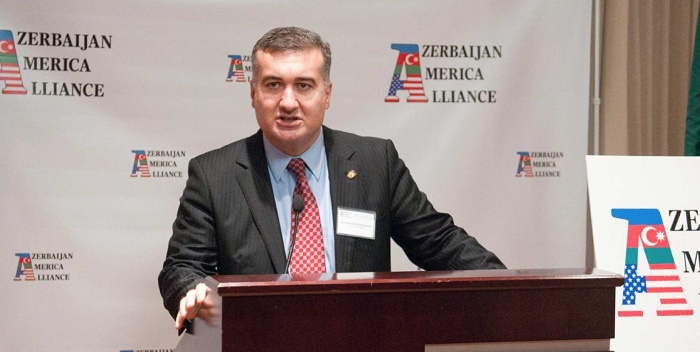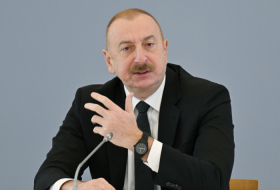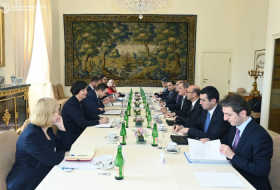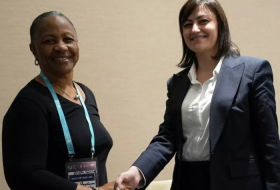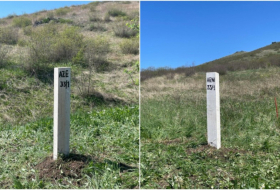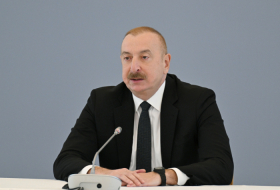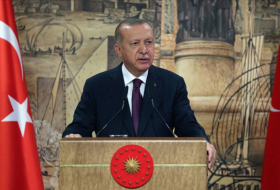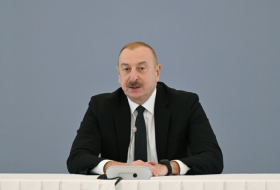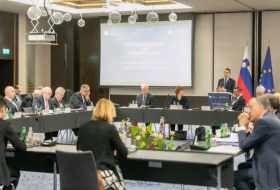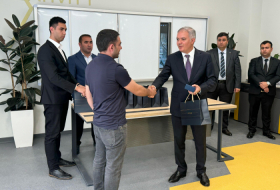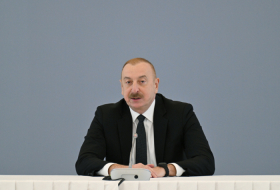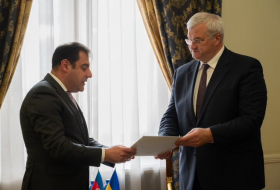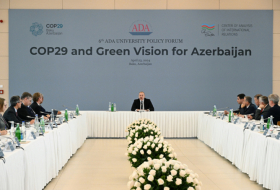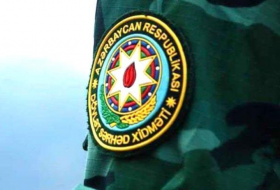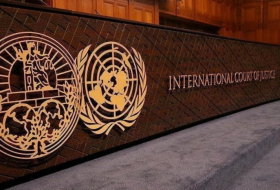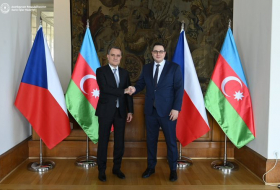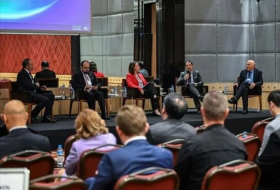Armenia`s assault across the line of contact, which separates the Azerbaijani and the Armenian forces in the occupied territories of Azerbaijan - triggered fighting that killed civilians and soldiers on both sides, according to the article.
On the night of April 2, 2016, all the frontier positions of Azerbaijan were subjected to heavy fire from the Armenian side, which used large-caliber weapons, mortars and grenade launchers. The armed clashes resulted in deaths and injuries among the Azerbaijani population. Azerbaijan responded with a counter-attack, which led to liberation of several strategic heights and settlements.
After repulsing the attack, Azerbaijan declared a unilateral ceasefire, a move supported by the US and other Western allies, Suleymanov wrote. Armenia accepted the truce two days later, after Russia intervened, the article said.
Military operations were stopped on the line of contact between Azerbaijani and Armenian armies on Apr. 5 at 12:00 (UTC/GMT + 4 hours) with the consent of the sides, Azerbaijan`s Defense Ministry earlier said. Ignoring the agreement, the Armenian side again started violating the ceasefire.
The conflict between the two South Caucasus countries began in 1988 when Armenia made territorial claims against Azerbaijan. As a result of the ensuing war, in 1992 Armenian armed forces occupied 20 percent of Azerbaijan, including the Nagorno-Karabakh region and seven surrounding districts. The 1994 ceasefire agreement was followed by peace negotiations. Armenia has not yet implemented four UN Security Council resolutions on withdrawal of its armed forces from the Nagorno-Karabakh and the surrounding districts.
Now the international community must call on Armenia to abide by the ceasefire, withdraw its occupation forces from Azerbaijani territory and negotiate in good faith for a settlement to one of the world`s most protracted conflicts, according to Suleymanov.
If Azerbaijan and Armenia can resolve their differences peacefully, it will encourage other long-term adversaries to settle longstanding disputes, he wrote. But, if force prevails over fairness, extremists and expansionists everywhere will be emboldened, Suleymanov said in his article.
The timing of Armenia`s attack was noteworthy - coming just as Azerbaijan`s President Ilham Aliyev was wrapping up a successful visit to the US for the Nuclear Security Summit, Suleymanov said. Shortly after more than 50 world leaders came together to promote peace, Armenia incited the hostilities in Nagorno-Karabakh - undermining hope of a sustained resolution, according to the article.
"Unfortunately, Armenia`s conduct during the current crisis is typical of its behavior over the past three decades," the article said. "During the final years of the former Soviet Union, Armenia supported separatists of Nagorno-Karabakh, a region in western Azerbaijan. While some pattern of separatist violence has been replicated elsewhere in the region, Armenia`s actions then resulted in the largest and most dangerous separatist conflict in the former Soviet Union."
Now that the ceasefire has halted the heaviest fighting in two decades, the international community must make the most of this opportunity to transform an unacceptable and unsustainable status quo, the diplomat said in his article. It is time to insist that Armenia not only accept the ceasefire but also withdraw its illegal occupation forces from Azerbaijani territory, according to Suleymanov.
Azerbaijanis are frustrated with the slow pace of the negotiations, and are eager to do their part for peace, the article read.
"Azerbaijan and Armenia are strategically situated in the South Caucasus at the crucial crossroads of Asia, Europe and the Middle East," said the article. "The international community should help us set an example for other nations embroiled in seemingly insoluble conflicts. We should seek coexistence so that all in our region can live alongside one another in peace and prosperity."
More about:








